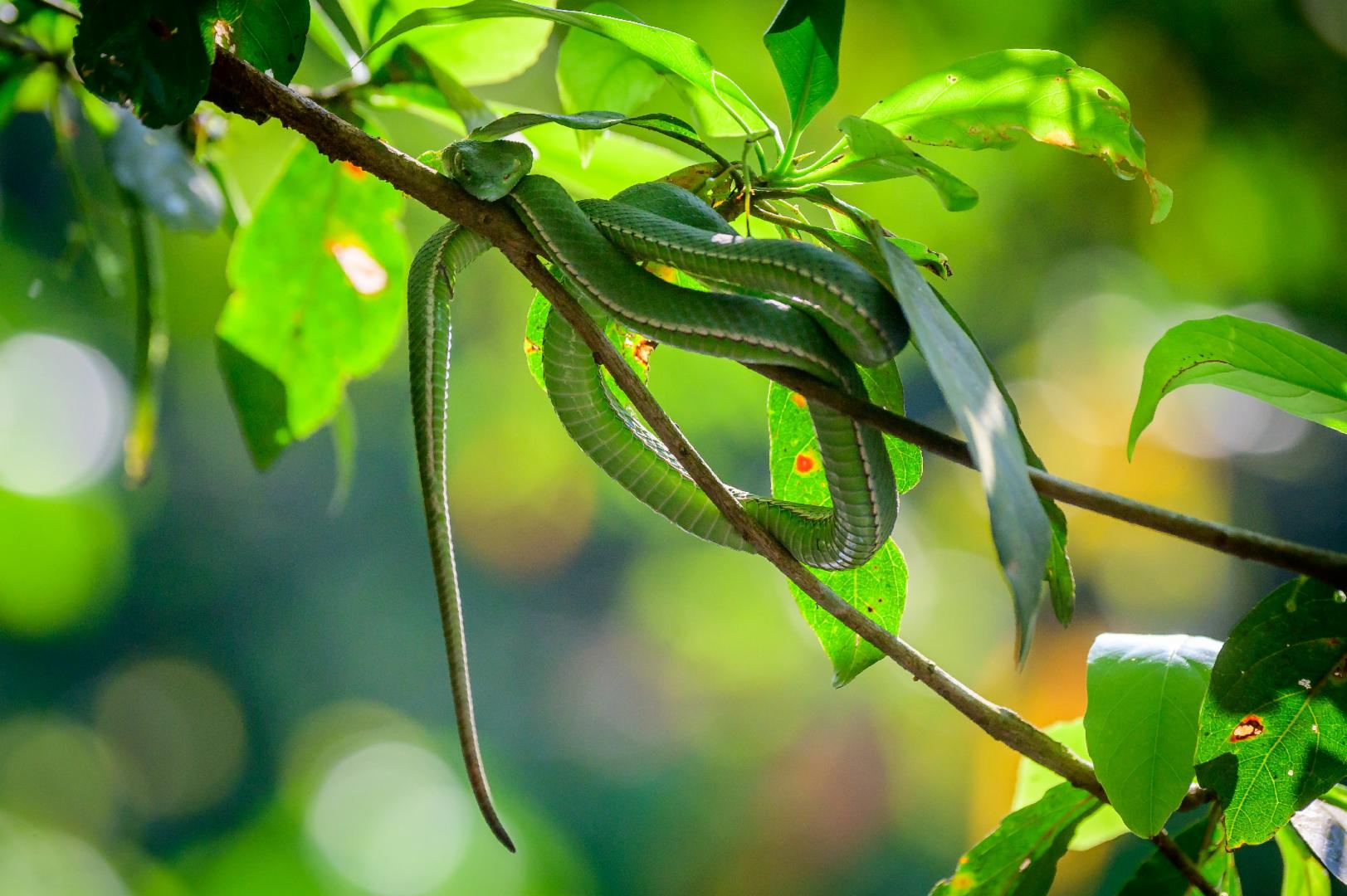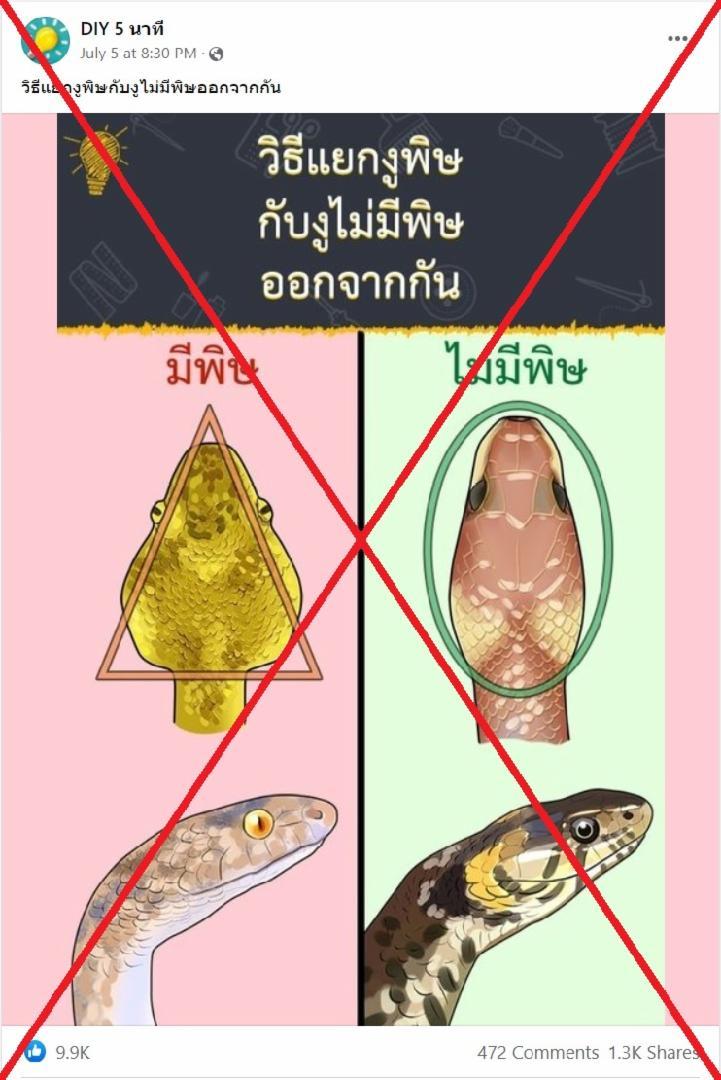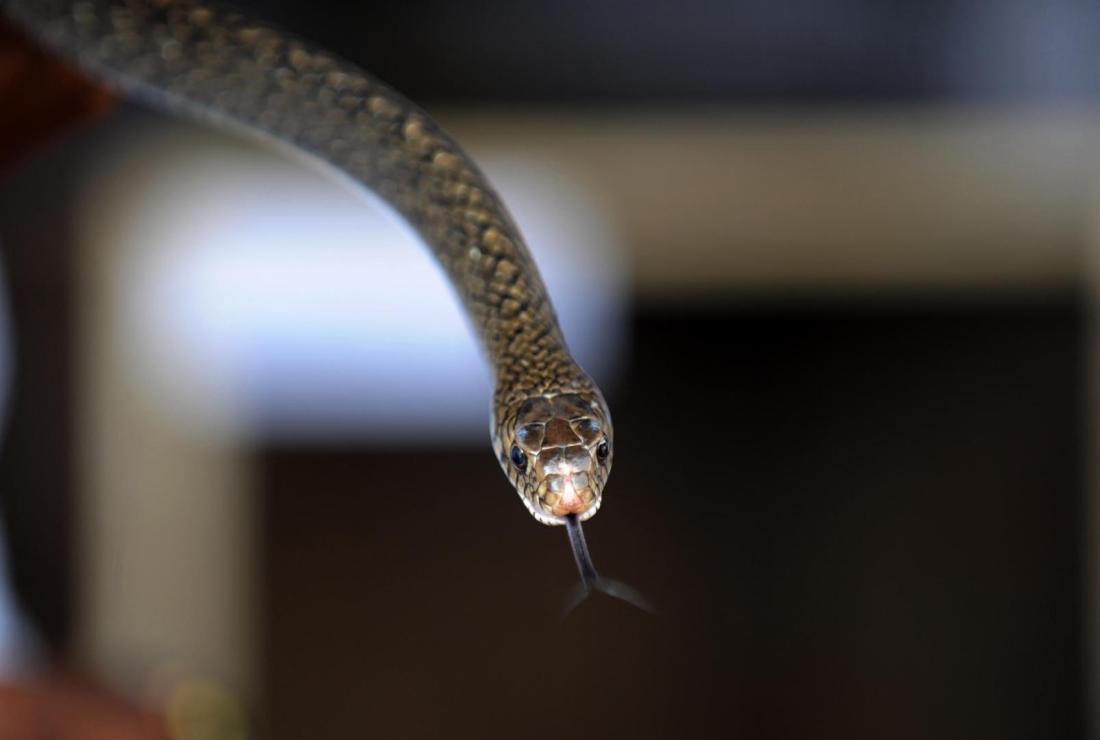
Thai posts mislead on 'how to identify venomous and non-venomous snakes'
- This article is more than three years old.
- Published on July 22, 2022 at 05:34
- 2 min read
- By AFP Thailand
The claim has been shared more than 1,300 times after it was published on Facebook here on July 5, 2022.
The Thai-language post caption and text on an accompanying illustrated infographic reads: "How to distinguish venomous snakes from non-venomous snakes."
On the left-hand side, the image shows one snake head with a triangle superimposed on it. The red Thai-language text above reads "venomous".
On the right-hand side, the image shows another snake head with an oval superimposed on it. The green Thai-language text reads "not venomous".

Thailand is home to several species of venomous snakes, including cobras and pit vipers.
Snakes have increasingly become a headache for residents in the capital Bangkok, as they often hide in peoples' homes during the rainy season.
Thai authorities, however, have been reluctant to get rid of the reptiles entirely because they help to control a rat population that could otherwise threaten crops and food stocks, AFP has reported.
The image was shared alongside a similar claim in Thai-language posts on Twitter here and here; as well as in a Russian-language blog post here.
However, snake specialists said the claim is misleading.
Dr Taksa Vasaruchapong, a specialist veterinarian at a venomous snake husbandry centre operating under the Thai Red Cross, told AFP the advice in the posts is not accurate for distinguishing venomous from non-venomous snakes.
"The advice to observe the snake’s head cannot be used to determine whether the snake is venomous or non-venomous," he said.
Thailand has more than 200 species of snakes and their characteristics would differ depending on the region, Taksa said.
Many non-venomous snakes have traits similar to venomous snakes, he said.
"Cobras are an example of venomous snakes with round-shaped-heads found commonly throughout Thailand," Taksa said.
"Their venom is deadly, just one bite can be fatal without proper treatment."

Saranont Charoensuk, senior manager and head of operations at Bangkok snake museum the Siam Serpentarium, also said the posts were not useful in determining whether a snake is venomous.
"There are many species of snakes in Thailand that don't fit this categorisation, and most of them are deadly," he explains.
"There is no one-size fits all trick to differentiate the venomous snakes from non-venomous snakes."
Saranont suggests people should take note of specific traits of common snake species instead.
For example, the Sumatran green pit viper can be identified by looking for its red tail, while cobras have hoods around their necks.
Saranont said: "All snakes are carnivores. They hunt their prey and their appearances can be deceptive."
Copyright © AFP 2017-2026. Any commercial use of this content requires a subscription. Click here to find out more.
Is there content that you would like AFP to fact-check? Get in touch.
Contact us
